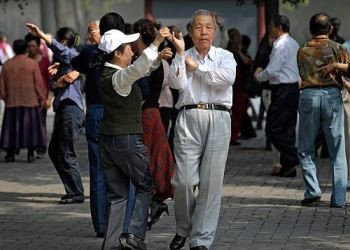A United Nations (U.N.) report has predicted that the population of China will drop by around 350 million by 2100. The report came amid ongoing efforts to implement the government's two-child policy.
Released on Wednesday, July 29, the report by the U.N.'s Department of Economics and Social Affairs showed that the population of the country is projected to decrease every year after 2029.
Data released by the National Bureau of Statistics in January also showed that the country's workforce has thinned out for the third consecutive year in 2014, with 3.7 million people retiring from work.
Concerns about the difficulties that will be caused by China's aging society, 10 ministerial-level departments and the ministries of civil affairs and education have jointly released a circular last year calling for the country to step up its preparations.
Huang Wenzheng, a former Harvard University assistant professor, said that the U.N. forecast is conservative and "too optimistic," as he predicted that China might see its population drop to 700 million by 2100.
According to the report, analysts have been calling on the government to ease the family planning restrictions and help slow the aging of society.
"It's long past time that China should relax its family planning policy and implement a second-child policy for all couples to tackle the problem of the shrinking population," Huang said.
The report said that 29 provincial-level regions have already eased the one-child policy by allowing couples to have a second baby if either parent is an only child.
On July 10, the National Health and Family Planning Commission said that "the mission is to continue carrying out the second-child policy," which has been regarded as the first concrete move toward the implementation of a second-child policy.
The report, however, said that a decreasing number of couples have registered to have a second child than expected, a trend that analysts believe may be due to the high cost of raising children.



























